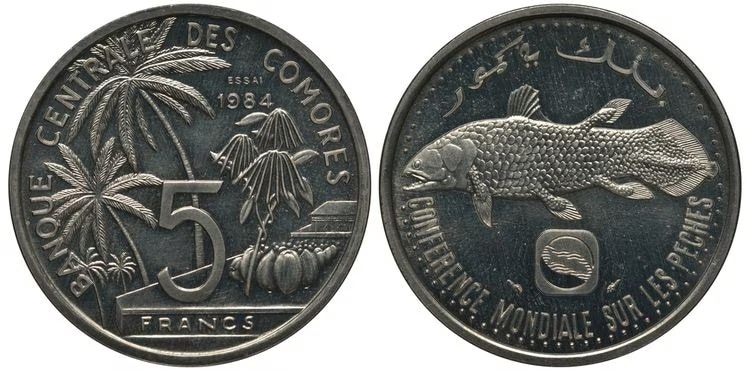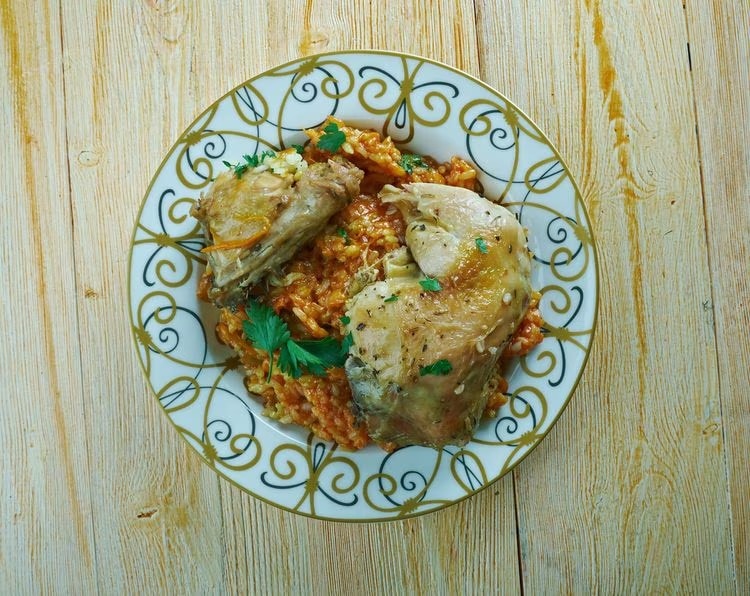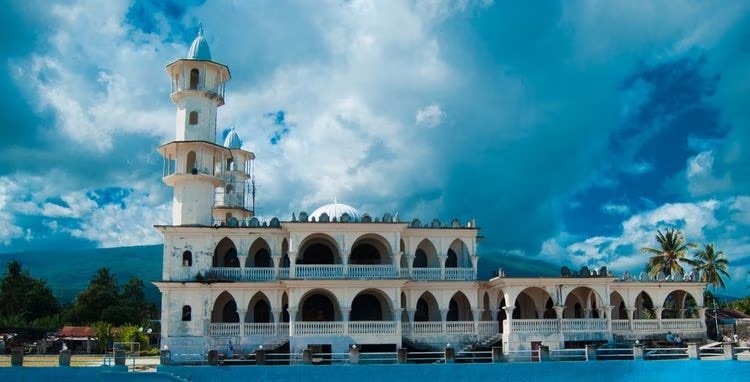Comoros Travel Tips and Information

Origin of Image source: shutterstock.com
Official Name
Union of the Comoros
Capital
Moroni
Population
Country Code
Approximately 870,000
KM
Country Code (international calls)
+269
The flight time to Comoros is approximately ---- hours. Check the climate, currency, religion, manners, other information of Comoros below. Wishing you pleasant travels to Comoros.
Comoros is located off the east coast of Africa. There are a total of 3 major islands that make up the nation-state, and the capital, Moroni, is on Ngazidja island. The largest island, Grande Comore is home to the active Katharla volcano.
Local Climate / Weather
The climate in Comoros is tropical and generally warm year-round, with two main seasons: a hot, rainy season from November to April and a cooler, dry season from May to October. The rainy season is influenced by the northeast monsoon, bringing heavy rains and high humidity, with temperatures ranging between 28°C to 34°C (82°F to 93°F). The dry season, on the other hand, offers milder weather with lower humidity and temperatures around 24°C to 29°C (75°F to 84°F), making it the most pleasant time for outdoor activities and beach trips. For travelers, the best time to visit Comoros is typically during the dry season from May to October. During these months, the weather is more predictable and comfortable, making it ideal for exploring the islands’ natural beauty, hiking, and enjoying water sports. However, if you’re interested in experiencing Comoros at its most lush and vibrant, visiting at the beginning or end of the rainy season can be rewarding, though travelers should be prepared for occasional storms and higher humidity. Comoros is also known for its vibrant festivals and events that reflect its rich cultural heritage. The most significant celebration is the "Moulid," which commemorates the Prophet Muhammad’s birthday and takes place in various towns with colorful parades, traditional music, and dance performances. Other cultural events, such as harvest festivals, bring communities together to celebrate the island's agricultural bounty, especially ylang-ylang flowers and cloves, which are essential to Comoros’ economy. These festivals provide travelers with a unique opportunity to engage with the local culture and traditions, adding a memorable experience to any visit.
Currency & Tipping
Currency
The currency in Comoros is the Comorian franc (KMF), which is often represented with the symbol CF or simply KMF. Banknotes are available in denominations of 500, 1,000, 2,000, 5,000, and 10,000 francs, while coins are issued in smaller values, though larger bills are more commonly used in everyday transactions. The Comorian franc is not as widely used outside the region, so it’s best to exchange currency locally upon arrival.
Tipping
Tipping in Comoros is not mandatory, but it is appreciated, especially in the hospitality industry. In restaurants and hotels, a tip of around 10% is a nice gesture if service charges are not already included in the bill. For tour guides, drivers, and other service providers, small tips are warmly welcomed and can make a positive impact, especially considering the local economy.
Useful Travel Information

Voltage & Electrical Outlets
The standard voltage is 220-240 volts, and the power outlets are typically of the European type C or E. All travelers should bring an adapter if their devices have a different plug type. Voltage converters aren’t usually necessary unless your devices do not support 220-240 volts, so checking your electronics before travel is a good idea.

Internet Connectivity
Internet access in Comoros can be limited, especially in rural or remote areas. While Wi-Fi is available in some hotels and guesthouses in the capital and popular tourist spots, connection speeds can be slower than what travelers may be used to. For reliable access, consider purchasing a local SIM card with a data package upon arrival, which is a convenient option for staying connected on the go.
Water for Consumption (Drinking Water)
Drinking water in Comoros is best approached with caution. Tap water may not be safe for consumption, so it’s recommended to drink bottled water, which is widely available. When dining out, request bottled or boiled water, and consider avoiding ice cubes in beverages to prevent any waterborne illness.
Culture, Religion & Social Etiquette
Culture
Comoros boasts a unique blend of African, Arab, and French influences in its culture and traditions, creating a rich tapestry that is distinct yet welcoming. All travelers will notice that family values and community ties are highly cherished, with extended families often gathering to celebrate important events and milestones. Traditional music and dance are integral to local celebrations, and visitors may have the chance to experience local performances or attend village festivals showcasing Comorian heritage.
Religion
Islam is the dominant religion in Comoros, and most locals follow Sunni Islam, which influences daily life, customs, and social norms. All travelers should be mindful of the Islamic traditions, especially during the holy month of Ramadan, when fasting is observed from dawn until sunset. It’s appreciated when visitors dress modestly and respect local customs around prayer times, as mosques are central to life in Comorian communities.
Social Etiquette
Comorian manners reflect the friendly and hospitable nature of its people, with locals typically greeting each other warmly. When meeting someone, a polite handshake is common, though women and men may refrain from physical contact in formal settings due to cultural customs. All travelers should note that public displays of affection are less common, and it’s courteous to ask before taking photos of people or their homes, as a sign of respect.
Food Culture
The food culture in Comoros is a flavorful blend of African, Arabic, and French influences, offering all travelers a unique culinary experience on these idyllic islands. Comorian cuisine centers around fresh seafood, coconut, tropical fruits, and aromatic spices like cloves and vanilla, which are locally grown. Street food is a vibrant part of the dining scene, where travelers can sample popular snacks such as grilled fish, spiced meat skewers, and "mkatra," a delicious rice cake often enjoyed as a quick bite. For an authentic taste of Comorian dishes, visit recommended local restaurants like Le Relais de Singani and La Grillade, which serve traditional fare with rich, exotic flavors that showcase the islands' multicultural heritage. Exploring Comorian food is a delightful journey for any traveler eager to discover the heart and soul of the Comorian people through their cuisine.
Major Tourist Attractions & UNESCO World Heritage Sites
Major Tourist Attractions
Comoros offers a captivating array of major tourist destinations that all travelers will find both scenic and culturally rich. Grande Comore, the largest island, is home to Mount Karthala, an active volcano with lush trails and panoramic views that are perfect for adventurous hikes. The capital city, Moroni, charms visitors with its Arabic-style architecture, lively markets, and historic medina, making it a must-visit for those interested in exploring local life and culture. For a more laid-back experience, the beaches of Mohéli provide pristine sands and crystal-clear waters ideal for snorkeling, diving, and spotting sea turtles, offering a relaxing escape into nature’s tranquility.
UNESCO World Heritage Sites
Among the cultural treasures of Comoros, the Medina of Moroni stands out as a candidate for World Heritage recognition due to its historical and architectural significance. The medina’s winding alleys, intricately carved wooden doors, and ancient mosques, such as the Old Friday Mosque, offer a glimpse into the rich heritage of the islands. Another potential World Heritage site is the island of Mohéli’s Marine Park, which protects diverse marine life, including dolphins, whales, and vibrant coral reefs. All travelers who appreciate natural and cultural preservation will enjoy exploring these heritage sites and learning about Comoros' efforts to celebrate and conserve its history and biodiversity.
Voice of Travelers to Comoros
New Experiences and Friendly People!
Comoros was a perfect choice for adventurers like us who wanted to explore somewhere new! We bought air tickets for a flight connecting through Nairobi, and boarded a Kenyan Airways flight to Grande Comore in the Comoros. The flight had excellent service. The plane landed in Moroni slightly ahead of the scheduled arrival time. We spent a few days relaxing by the pool in the hotel, a day sailing on and jumping off to swim in the crystal-clear water and a day snorkeling. On the last day, we had tasty local food and had interesting conversations with the locals we met. It was a wonderful time there.
Island Hopping in the Indian Ocean
I booked an air ticket on an Air Madagascar flight to Comoros. Wishing to travel to all three islands, I started the journey from Grande Comore. During the flight, I got to enjoy a great aerial view of Comoros from the window. I'm glad I chose an air ticket that flew during the day! As we arrived at Comoros, we saw the beautiful coastlines and lush interiors. The landscapes that I saw in Comoros are still clear in my mind. I already miss Comoros.
Travel FAQs
What is the safety situation in Comoros like? What should I be careful of?
Comoros is generally safe for travelers, but travelers should exercise caution due to occasional political unrest and limited infrastructure.
What is the most popular airport to fly to Comoros?
Comoros is an archipelago country, with each island having its own airport, allowing air travel within the country. The largest airport is the international airport, Moroni Prince Said Ibrahim International Airport.
What are the major cities in Comoros?
The capital of Comoros is Moroni on Grande Comore Island.
Is English spoken in Comoros?
There are some places where English is spoken, such as hotels, but Arabic and French are mainly used.
What is the best season to visit Comoros?
The best time to visit Comoros is during the dry season, from May to October.



